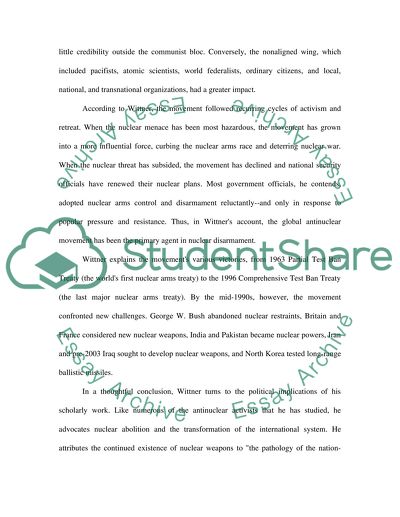Confronting the Bomb Book Report/Review Example | Topics and Well Written Essays - 750 words. Retrieved from https://studentshare.org/literature/1509727-confronting-the-bomb
Confronting the Bomb Book Report/Review Example | Topics and Well Written Essays - 750 Words. https://studentshare.org/literature/1509727-confronting-the-bomb.


